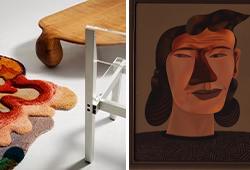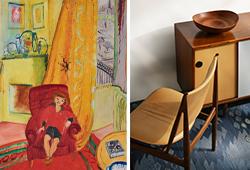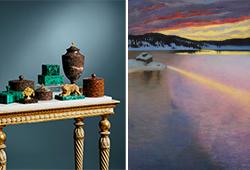Inge Schiöler
"Piren Langestrand"
Signed Inge Schiöler and dated 1958. Canvas 39 x 46 cm. Hjorthén 753.
More information
In the late 1950s, Inge Schiöler was able to build a house on Sydkoster thanks to his sales success. This cottage became Schiöler's permanent home during his leave from the hospital where he was treated for schizophrenia. Using the cottage as a base, Schiöler made painting trips in the Bohusland archipelago with his snipe and, according to his friends, he was ‘king in his boat’. Schiöler lived in relative isolation on Koster but often received visitors.
After his discharge, he came to live permanently on Sydkoster, which meant that he could now work in peace and quiet without having to think about travelling back. He was now able to experience the breathtaking landscape in all seasons of the year.
The colours increase in intensity, with striking and sometimes dominant hints of ultramarine, emerald green and violet. His work is intense, unplanned and spontaneous. He rarely uses an easel, but either props the canvas against something or lays it directly on the ground. Often several images were created from a single boat trip. He stretched ropes across the canvas to hang them to dry and several of them were literally sprinkled with salt during the journey home in rough weather. He didn't hesitate when making his paintings and he never changed his paintings afterwards. If he wasn't satisfied, ‘he could redo the subject another time,’ wrote a friend.
There is a striking increase in the strength and intensity of colour in his paintings from the 1960s onwards. Many of his finest and most colourful compositions were produced during this period.








































